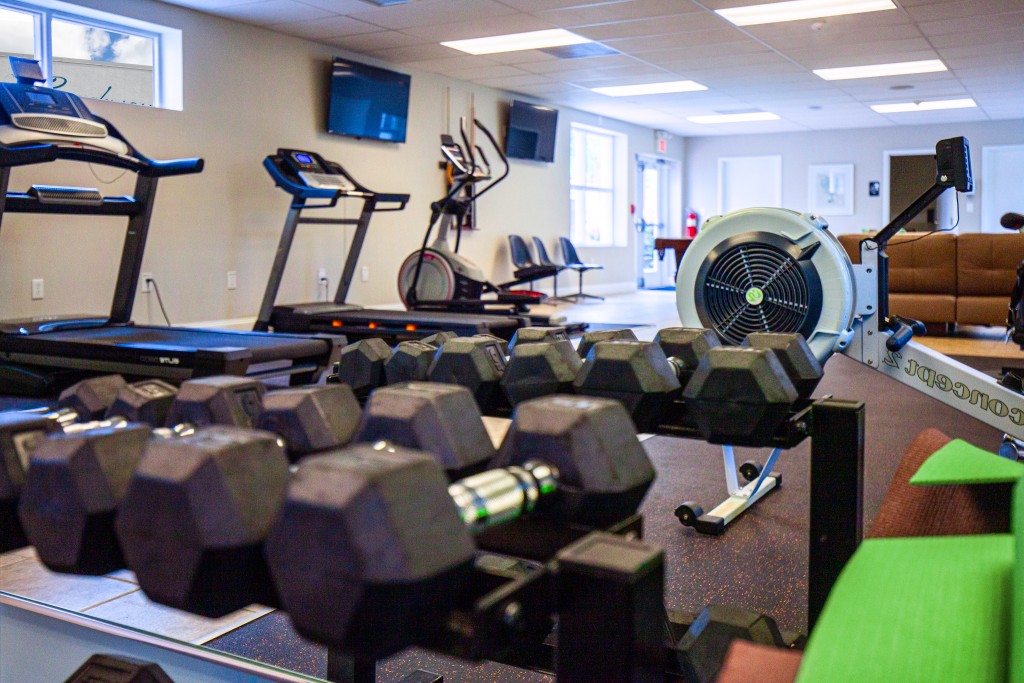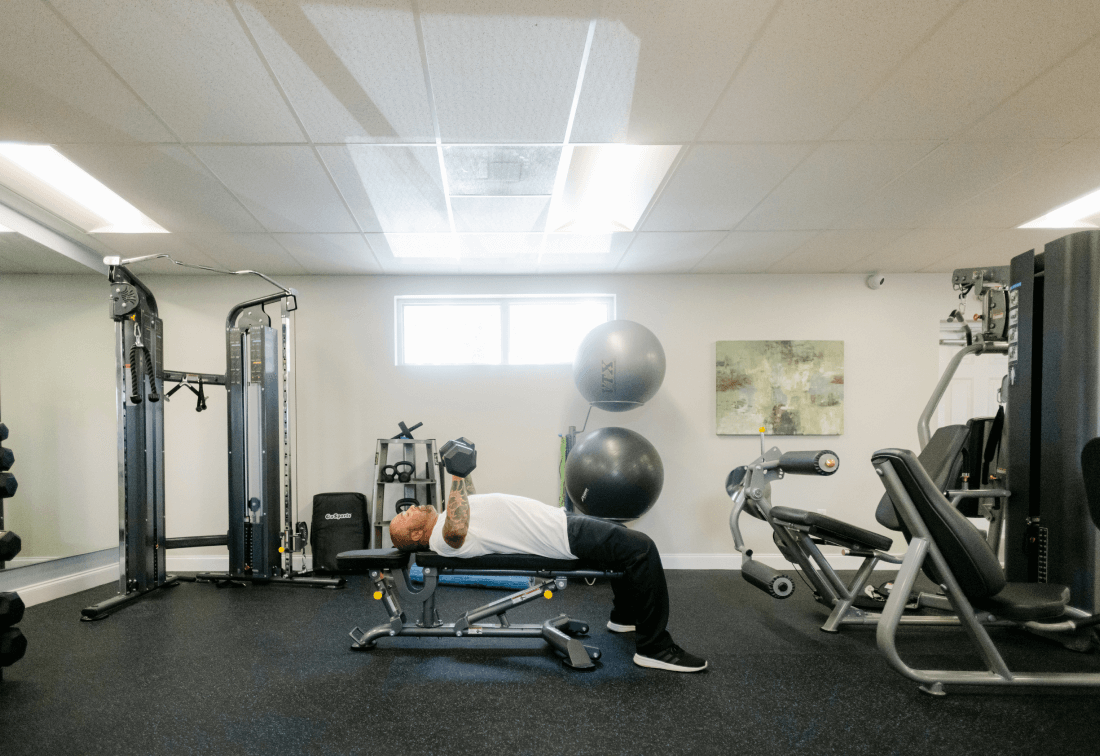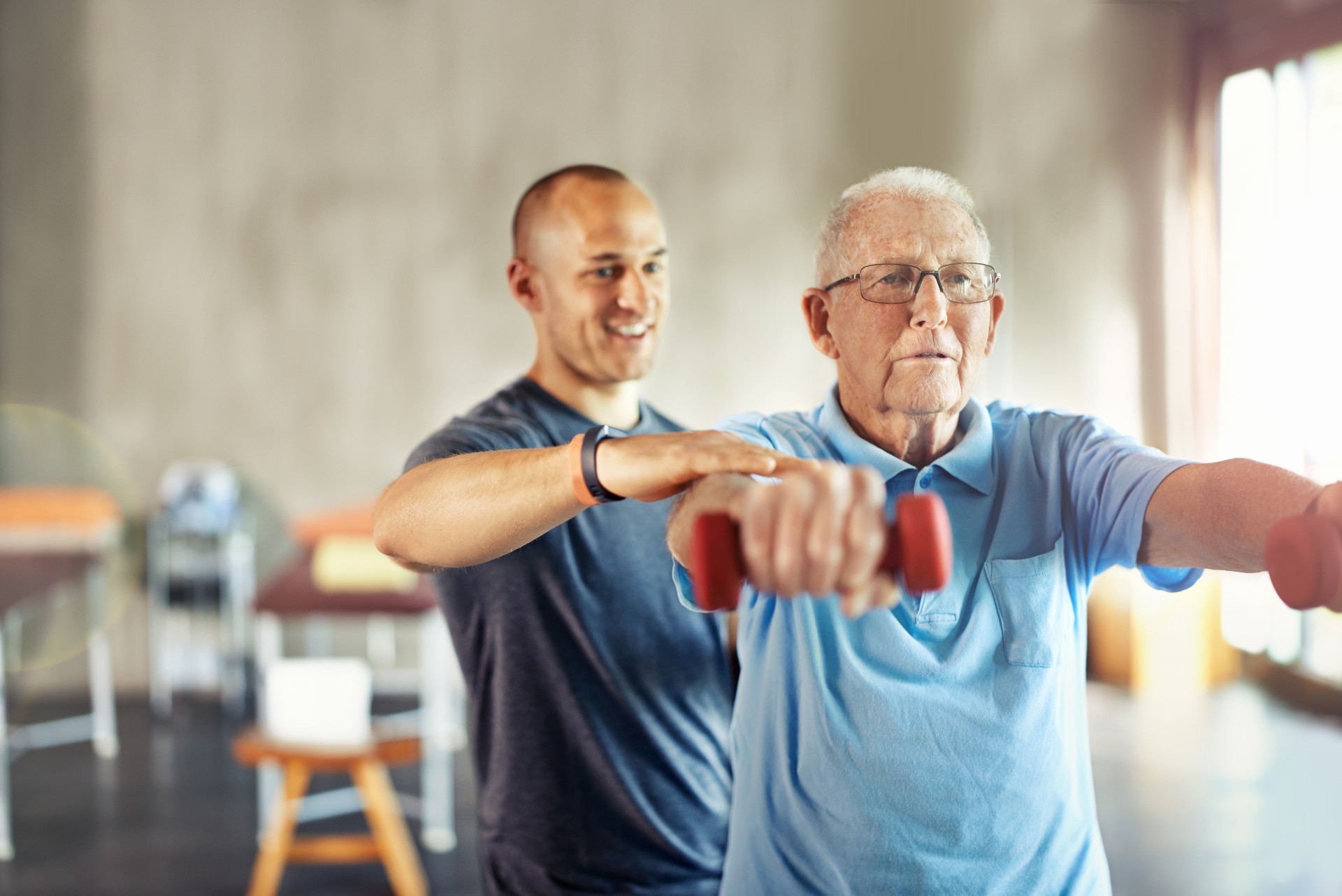

Nutrition and
Fitness at Beachway
At Beachway Therapy Center, we work to heal each patient’s mind, body, and soul. With a holistic approach to addiction recovery and mental health treatment, we take a 360-degree view of health and wellness. This is the most successful method for sustainable and lasting recovery that endures well after recovery.
Beachway provides access and guidance to fitness and nutrition so that our patients can build a foundation in healthy recovery. We believe that the combination of recreational activities and fitness routines aid in the overall recovery process.


Activities
Holistic treatment therapies that incorporate fitness may consist of many components such as:
- Yoga
- Group Excercise Classes
- Experiential Therapy Activities (Kayaking, Paddle-boarding)
- Nutrition and Fitness Education and Support
- Meditation
- Horseback Riding
- Acupressure Massage


How Fitness and Nutrition Impact Recovery
For many people that struggle with addiction or mental health issues, physical health may have been somewhat of an afterthought.
However, at Beachway, we believe that physical health and wellbeing offer balance and ultimately promote mental health. From easing withdrawal symptoms to offering an outlet for negative emotions, there are many benefits for physical health.
- Endorphins – Scientists have proven that endorphins are released when we exercise, increasing our sense of happiness. The endorphins from exercise can also help patients deal with the emotional aspect of treatment and help create a positive outlet for emotions.
- Increasing self-esteem – In many cases, people who struggle with addiction and mental health suffer from low self-esteem. Accomplishing fitness goals and getting in shape can help build a positive self-image and improve self-esteem.
Creating positive habits – Working out while in treatment allows patients to develop a healthy routine to carry with them even after treatment is complete. - Creating positive habits – Working out while in treatment allows patients to develop a healthy routine to carry with them even after treatment is complete.
Despite regular group and individual therapy sessions, patients will find themselves with a lot of free time during their treatment stay. Supplementing that free time with fitness is a positive way to make the most out of your recovery experience.

Benefits of Excercise for Recovery
Increased Energy levels
People that struggle with mental health and addiction issues often experience low energy levels that may stem from depression or another co-occurring disorder. Regular exercise can significantly boost energy levels and reduce feelings of fatigue.
Self Image
Stress and inactivity that stem from mental health issues can lead to weight gain and poor skin health; exercise, with proper nutrition, can lead to weight loss and improved skin health. Many people will gain a feeling of accomplishment which can be esteem building, leading to a more positive outlook.
Physical Pain Relief
Although physical pain is quite subjective and can vary from person to person, studies have shown that physical activity can reduce chronic pain, increasing a person’s quality of life. Studies have shown that aerobic exercise can even increase a person’s tolerance to pain.
Emotional Regulation
Another benefit of exercise for people who struggle with mental health issues is boosting a person’s mood and enhancing more positive thoughts. Studies have shown that exercise may be an often-neglected intervention in mental health care.
Relaxation and Sleep
whether an exercise routine is focused on resistance training or aerobic exercise, another benefit of regular exercise is a better quality of sleep.


Benefits of Nutrition for Recovery
Studies have shown that people who struggle with substance use disorder or alcohol use disorder experience malnutrition. Between eating poorly and the effects that drugs or alcohol have on an individual’s system, metabolism, organ function, and mental health are affected by what goes into their body. Mental health disorders, especially depression, are linked to poor nutritional health. A diet rich in antioxidants and high in anti-inflammatory foods has been studied for its ability to reduce the risk of depression.
A healthy diet should include fruits and vegetables, whole grains, low-fat dairy, and (lean) protein. A healthy diet should also limit amounts of sodium, saturated fat, and sugar. Proper nutrition will help
- Protect your brain
- Fight fatigue
- Boost your mood and alertness

Activities at Beachway
In addition to regular access to Beachway’s on-site gym, patients will have the opportunity to participate in group exercise sessions, experiential therapy, yoga, horseback riding, kayaking, and chiropractic services.
One of the primary goals of treatment at Beachway is to drive home the idea that patients can enjoy life healthily and sustainably. We reinforce this belief by offering fun and dynamic activities for our patients. Twice per week, outpatient clients are invited to head to the nearby beach to enjoy the sun and waves. We also offer equine therapy to inspire clients through physical and emotional bonding with horses.


Nutrition at Beachway
Beachway is proud to offer our patients food that is prepared daily from our commercial kitchen. Patients can choose from a rotating daily menu or request a customized meal to meet their particular dietary needs. Breakfast, lunch, and dinner are prepared on-site with the mindset that healthy and nutritious food should be delicious and enjoyable.
When a patient enters treatment at Beachway, they may consult with a nutritionist to help get back on track, fueling their body in a way that will promote health and longevity and make them feel better. Our medical professionals provide nutritional evaluations, counseling for weight management, and counseling for nutritional needs to help with eating disorders, substance abuse, and other mental illnesses. A nutritionist may provide the tools to eat well during recovery while also laying the foundation for a healthy lifestyle to continue after treatment.



